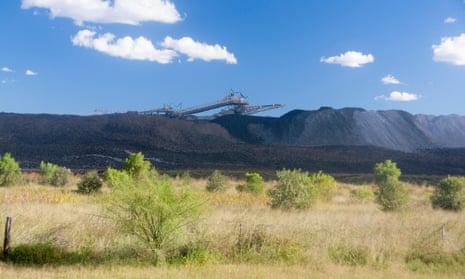Indian coal giant Adani has halted engineering work related to Australia’s largest proposed mine, say industry sources, raising speculation that the company is set to abandon the contentious project.
Adani last week advised four major engineering contractors to stop work on projects around the Carmichael mine in Queensland including a joint venture rail line and the expansion of Abbot Point port, Guardian Australia has been told.
Industry sources said the move to suspend preparatory work by WorleyParsons and Aecon, Aurecon and SMEC at this stage of a project was unheard of and made no sense as a savings measure even amid delays.
It follows setbacks that have pushed back what would be Australia’s largest coal project, including the forced scrapping of plans to dump dredge spoil from the port in Great Barrier Reef waters and then the Caley Valley.
Adani is also facing legal challenges from Indigenous landholders and conservation groups, one of which is likely to push state government decisions on mining lease and environmental approvals back until the end of the year at least.
It is understood a team of up to 40 engineers at WorleyParsons’ Brisbane office, who were working with Aecon on the rail joint venture, were among those pulled off the project.
A senior engineering industry source said it was difficult to read the move as anything but “Adani beginning to run up the white flag” on the project.
The cost of contracts for engineering design and proposals, at several million dollars a year, was negligible in the context of a multibillion-dollar project and Adani would need the work done in any case, the source said.
He said it “makes no sense” for Adani to suspend work done by engineering teams employed on short-term contracts who would have already moved on should the company later wish to have the work resumed.
“In my experience, the most common reason for delays in project completion is because engineering hasn’t been finished on time,” he said.
“So when you get the chance where you then continue with the engineering but the project has been pushed out, usually that’s a blessing in disguise.”
A spokeswoman for Adani declined to respond in detail to questions from Guardian Australia, including why it cancelled the engineering projects and whether it was retreating from the project.
“It’s Adani’s practice not to comment on specific commercial arrangements,” she said.
Spokeswomen for WorleyParsons and Aurecon also declined to comment, citing client confidentiality.
A spokeswoman for SMEC did not return calls.
Tim Buckley of the Institute for Energy Economics and Financial Analysis said to stop work at this stage “just crucifies the project, it all goes out the window”.
“The minute Adani stops moving forward, the project is just dead, in my view,” Buckley said. “And the reason is you’ve got billions of dollars of debt in Australia and they’ve got this interest bill.
“They’ve been drawing a line in the sand and that is that they need financial close by October 2015.
“If they’ve got no banks lined up, which I don’t think they have, you can’t go to financial close.”
Buckley said the pressure on Indian billionaire Gautam Adani to make a call on the project included a structural slump in the world thermal coal price, a new Indian government policy that favoured domestic coal and renewables and Adani’s own financial position.
The latest annual report in March showed Adani Mining in Australia carried $1.3bn in debt and had negative equity of $230m.
“When your debt in India costs you 12%, it’s an arm and a leg, you’re talking an interest bill of $150m a year,” Buckley said.
“The debt is largely unhedged, so you’ve got currency risks – Adani took a $200m loss on the currency in the last 12 months alone. All of which says there’s pressure on him to change strategy.”
